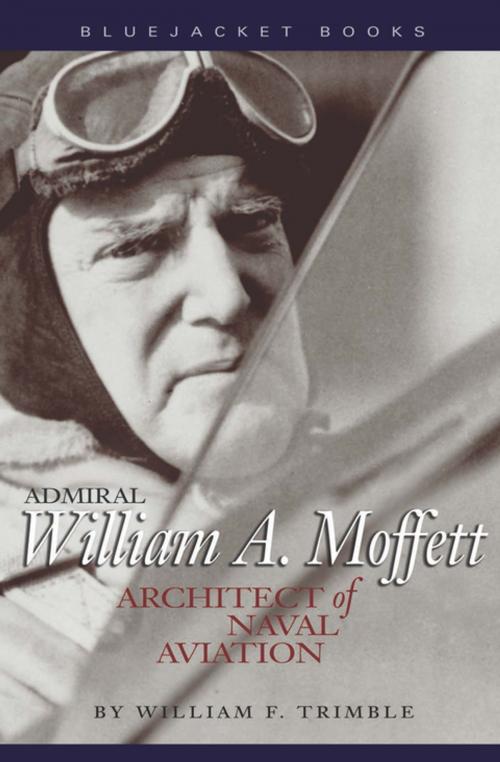| Author: | William F. Trimble | ISBN: | 9781612514284 |
| Publisher: | Naval Institute Press | Publication: | October 29, 2014 |
| Imprint: | Naval Institute Press | Language: | English |
| Author: | William F. Trimble |
| ISBN: | 9781612514284 |
| Publisher: | Naval Institute Press |
| Publication: | October 29, 2014 |
| Imprint: | Naval Institute Press |
| Language: | English |
Naval aviation historian William F. Trimble provides a clear and detailed portrait of the man who took on the challenge of forming an aeronautical bureau within the U.S. Navy in 1921 and then nurtured the early development of naval aviation. Describing Admiral William A. Moffett as one of the first high-ranking naval officers to appreciate the importance of the airplane and the effect it would have on the fleet, the author contends that the admiral's strong background as a surface officer gave him a credibility and trust with his superiors that others could not match. The author attributes Moffett's desire to keep aviation as part of the fleet, along with his diplomacy, tenacity, and political and military savvy, to the success of the infant air arm during its formative years. In striking contrast to the tactics of Army General Billy Mitchell, Moffett's handling of the loyalty issue and other politically sensitive topics saved the Navy's air arm, according to Trimble. The book is equally candid about the admiral's shortcomings, including his heavy-handed support for airships, a technological dead end that squandered millions and led to Moffett's death in 1933 when he went down with the airship Akron during a storm.
Naval aviation historian William F. Trimble provides a clear and detailed portrait of the man who took on the challenge of forming an aeronautical bureau within the U.S. Navy in 1921 and then nurtured the early development of naval aviation. Describing Admiral William A. Moffett as one of the first high-ranking naval officers to appreciate the importance of the airplane and the effect it would have on the fleet, the author contends that the admiral's strong background as a surface officer gave him a credibility and trust with his superiors that others could not match. The author attributes Moffett's desire to keep aviation as part of the fleet, along with his diplomacy, tenacity, and political and military savvy, to the success of the infant air arm during its formative years. In striking contrast to the tactics of Army General Billy Mitchell, Moffett's handling of the loyalty issue and other politically sensitive topics saved the Navy's air arm, according to Trimble. The book is equally candid about the admiral's shortcomings, including his heavy-handed support for airships, a technological dead end that squandered millions and led to Moffett's death in 1933 when he went down with the airship Akron during a storm.















